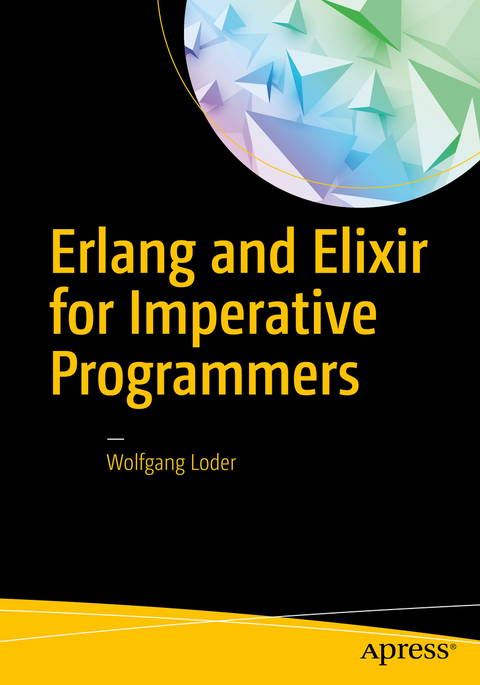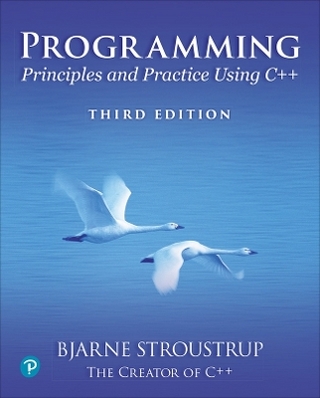
Erlang and Elixir for Imperative Programmers
Apress (Verlag)
978-1-4842-2393-2 (ISBN)
Have you been told by your customer or manager that they heard good things about Erlang, you should use it for the next project? Never had to deal with functional programming or real-time systems? In 2014, the author, Wolfgang Loder, developed a repository for digital assets that had to deliver those assets in binary form quickly and reliably, being able to deal with at least hundreds of requests per second.
Since he could decide the architecture and software stack of the solution, he immediately thought of Erlang and its libraries and started to evaluate this option. It was not long after that he discovered Elixir, which sits on top of the Erlang virtual machine and has features more palatable for non-functional programmers, although it is a functional programming language itself.
Erlang and Elixir for Imperative Programmers gives you a basis for deciding whether the effort is viable for your next project. This book is partly a tale of the author's own experience and partly a description of the bigger and more subtle differences between Erlang/Elixir and languages such as C++, Java, and C#.
What You'll Learn
Discover functional programming, Erlang, and Elixir
Work on service design and service features
Set up your environment: deployment, development, and production
Implement the service including public interface, asset processing, and deployment
Use the patterns and concepts found in Erlang including type creation concepts and code structuring.
Who This Book Is For
Experienced and savvy programmers, coders, and developers new to Erlang and Elixir.
Wolfgang Loder is programming software since the 1980s. He successfully rejected all calls for management roles and remained hands-on until now. His journey went from Assembler and C to C++ and Java to C# and F# and JavaScript, from Waterfall To Agile, from Imperative to Declarative and other paradigm changes too many to list and remember. Most of his career Wolfgang was a contracting 'Enterprise Developer', so the introduction of 'new' languages, frameworks and concepts is very slow in this field. Once he decided to develop his own products he was free of such constraints and ventured into all sorts of paradigms, be it NoSQL or functional and evaluating all the latest ideas, crazy or not. In other words, he has fun developing software. Wolfgang was born in Vienna, Austria and lives in the UK and Kenya.
Part 1: Before we start.- Chapter 1: Imperative vs. Functional Programming.- Chapter 2: From Erlang to Elixir.- Chapter 3: Setting your Mind.- Chapter 4: Service Overview and Design.- Chapter 5: Service Features.- Chapter 6: Environment and Deployment.- Chapter 7: Development Setup.- Chapter 8: Production Setup.- Chapter 9: Overview.- Chapter 10: Public Interface.- Chapter 11: Asset Processing.- Chapter 12: Deployment.- Chapter 13: Overview Patterns and Concepts.- Chapter 14: Functional Concepts.- Chapter 15: Type Creation Concepts.- Chapter 16: Code Structuring Concepts.- Appendix A: Modeling.- Appendix B: Resources.- Appendix C: Features-Framework-Concepts Matrix.- Appendix D: Quick Guide to Erlang and Elixir.
| Erscheinungsdatum | 15.12.2016 |
|---|---|
| Zusatzinfo | 43 Illustrations, color; 33 Illustrations, black and white; XVIII, 256 p. 76 illus., 43 illus. in color. |
| Verlagsort | Berkley |
| Sprache | englisch |
| Maße | 178 x 254 mm |
| Themenwelt | Mathematik / Informatik ► Informatik ► Programmiersprachen / -werkzeuge |
| Informatik ► Software Entwicklung ► Objektorientierung | |
| Informatik ► Theorie / Studium ► Compilerbau | |
| Schlagworte | Code • Coding • Development • Elixir • Erlang • Functional • programming • Software |
| ISBN-10 | 1-4842-2393-4 / 1484223934 |
| ISBN-13 | 978-1-4842-2393-2 / 9781484223932 |
| Zustand | Neuware |
| Informationen gemäß Produktsicherheitsverordnung (GPSR) | |
| Haben Sie eine Frage zum Produkt? |
aus dem Bereich


